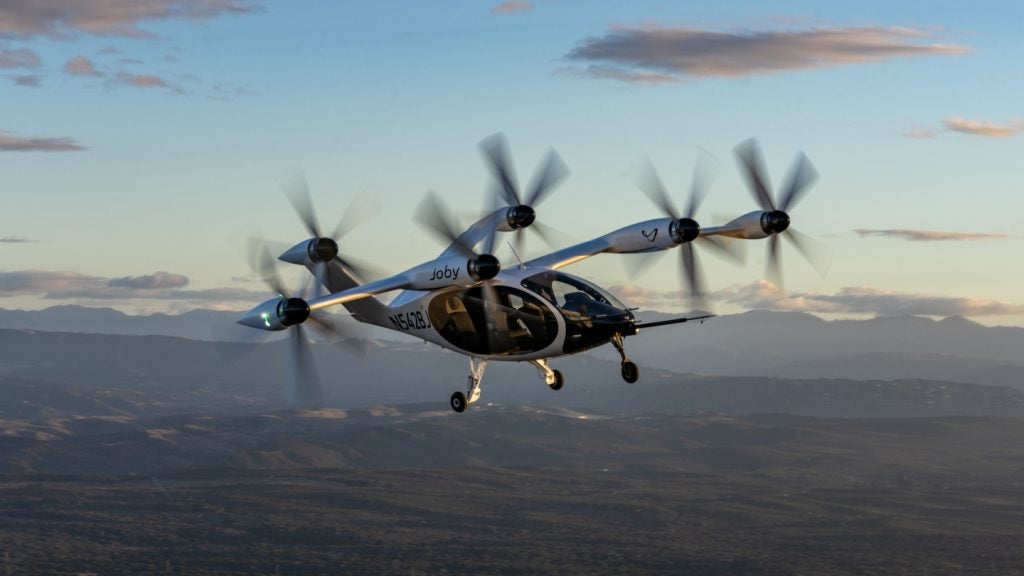Information released by the US National Transportation Safety Board (NTSB) has revealed an accident involving one of electric vertical takeoff and landing (eVTOL) aircraft manufacturer Joby Aviation’s prototype aircraft was caused by the loss of a propeller blade.
The incident happened in February 2022 during a remotely piloted airspeed and altitude envelope expansion test at the company’s test base near Jolon, California and saw no injuries, with the aircraft’s primary structures also all recovered.
The accident report details the events leading up to the crash and the damage sustained to the aircraft, stating that the “primary structure was destroyed on impact with the ground” and a small localised fire took place on the ground after falling during a dive speed test at 8,900 feet.
A section outlining possible causes of the incident states that the flight test operating “beyond the typical operating envelope of the aircraft” combined with “anomalous tilt system condition at a single propeller station” lead to a blade pitch beyond the designed limitations causing the propeller blade failure and ejection.
Along with the accident report, the NTSB has also released a lab investigation, video study and analysis of image and parametric data.
In response to the release of the reports, Joby highlighted the use of experimental flight tests like the one described to determine the limits of aircraft performance and inform final designs.
It said that since the incident "we've incorporated a range of improvements to our design and testing methodologies, many of which were already planned, and our second pre-production prototype aircraft has flown nearly 25,000 miles, including more than 100 flights flown by a pilot on board."
Despite the incident, which appears to be a one-off, Joby has become one of the leaders in the eVTOL aircraft industry by becoming one of the first companies to conduct pilot tests of its aircraft and marking milestones such as the first electric air taxi flight in New York City.
The company has also just received Federal Aviation Administration approval for its propulsion certification plan, meaning all structural, mechanical and electrical system certification plans for its electric air taxi have now been approved by the regulator.









